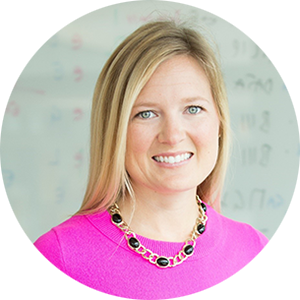
Keynote Presentation
Shifting Left to Scale up:
Shortening the Road to Scalable Quantum Computing
Krysta Svore, Microsoft »
General Manager Quantum Software and Systems Engineering
Monday, October 18, 2021 @ 8:30-10:30 MT — UTC-6
Biography »
Dr. Krysta Svore is General Manager of Quantum Software and Systems Engineering at Microsoft. She believes empowering people with the power of quantum computing, today and tomorrow, will be one of the greatest revolutionary steps in our history. She leads a team dedicated to realizing a commercial-scale quantum computing system and ecosystem to solve today’s unsolvable problems. She spent her early years at Microsoft developing machine-learning methods for web applications, including ranking, classification, and summarization algorithms. In 2018, Dr. Svore was named one of the 39 Most Powerful Women Engineers according to Business Insider. She serves as a member of the Advanced Scientific Computing Advisory Committee of the Department of Energy and as a member of the ISAT Committee of DARPA. She is an appointee of the National Quantum Initiative Advisory Committee. She has received an ACM Best of 2013 Notable Article award and was a member of the winning team of the Yahoo! Learning to Rank Challenge in 2010. She chaired the 2017 Quantum Information Processing Conference. Dr. Svore is a Kavli Fellow of the National Academy of Sciences, a Senior Member of the Association for Computing Machinery (ACM), a representative for the Academic Alliance of the National Center for Women and Information Technology (NCWIT), and a member of the American Physical Society (APS). Dr. Svore has authored over 70 papers and has filed over 25 patents. She received her PhD in computer science with highest distinction from Columbia University and her BA from Princeton University in Mathematics with a minor in Computer Science and French.
Abstract »
In the past, development of a new computer technology followed a common path: tape out a chip, develop the software, and then bring up the system. But our road to scalable quantum computing needs to be different. To bring in the timelines to scale, we need to close the gap between theory and development, and co-develop hardware and software. We have an advantage of already knowing some of the problems we want to solve with quantum computers, up to a decade before we will implement them, and we know they require scaling the quantum machine to 1M qubits and beyond. To accelerate this scaling up, and to shorten the road ahead, requires early software development, rapid evolution of devices, widespread community engagement, and continued exploration of the next wave of quantum algorithms and solutions. I’ll share how we’re working at Microsoft to help open up the stack, through software services, tools, and languages, to enable creative and collaborative innovation across the community, increased interoperability and flexibility among platforms and devices, and co-development of hybrid quantum solutions. To scale up, we need to keep shifting left, together.
